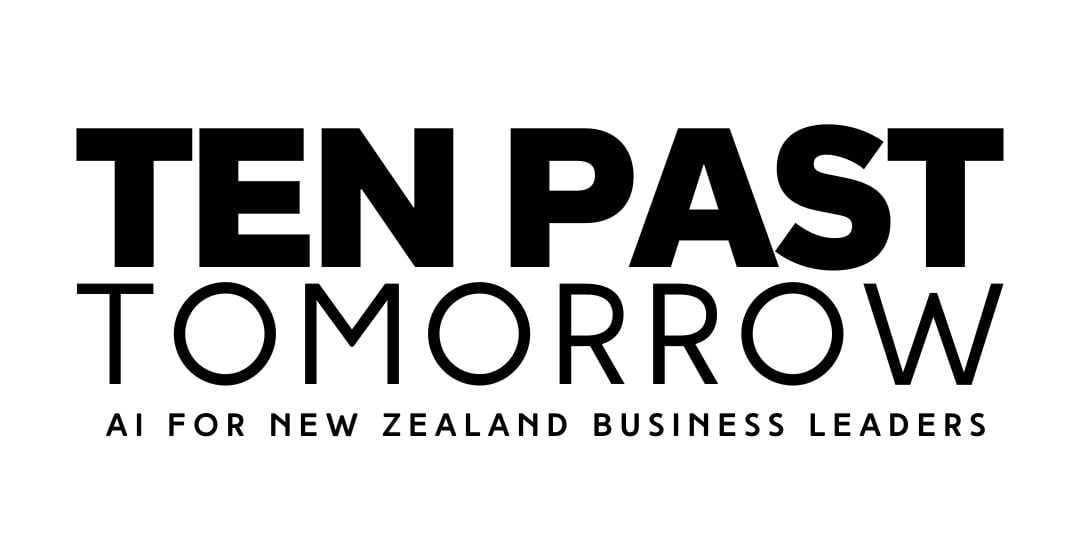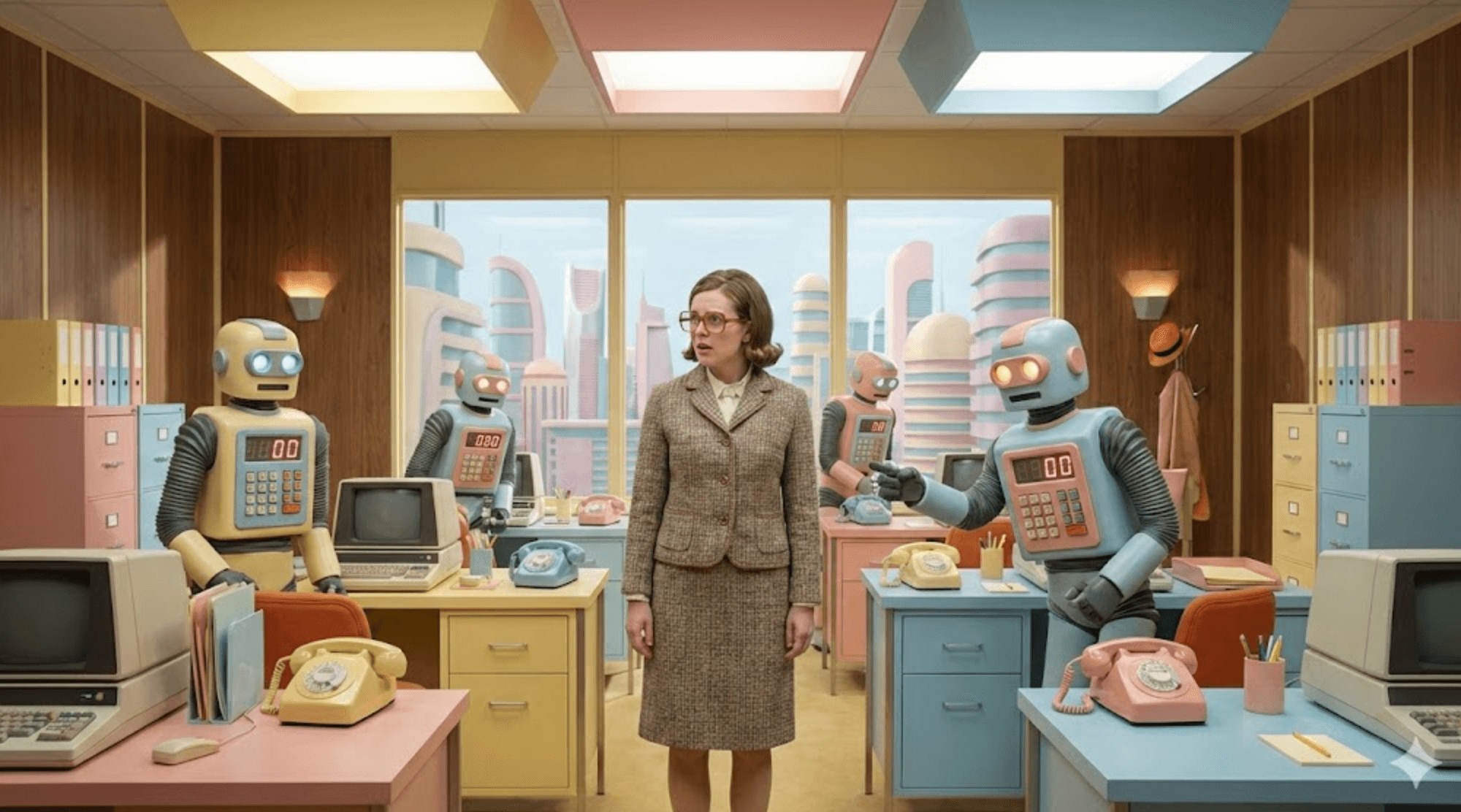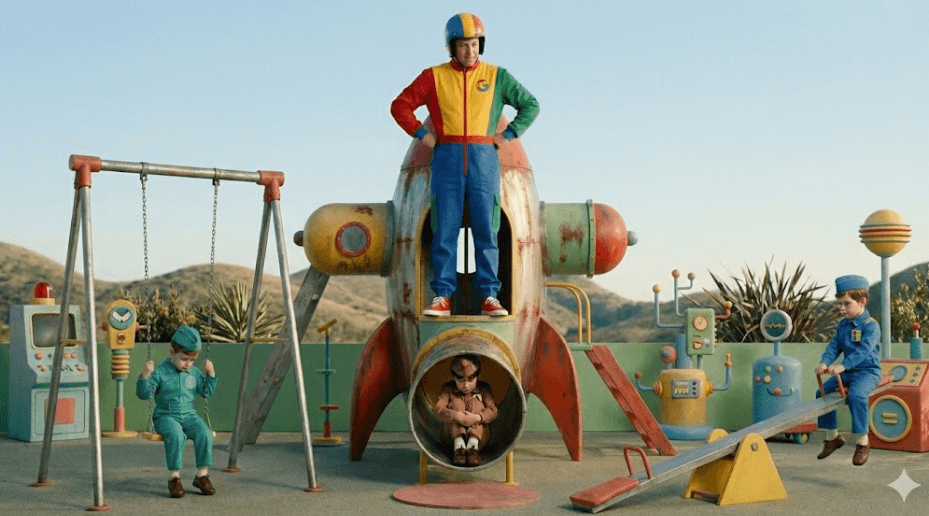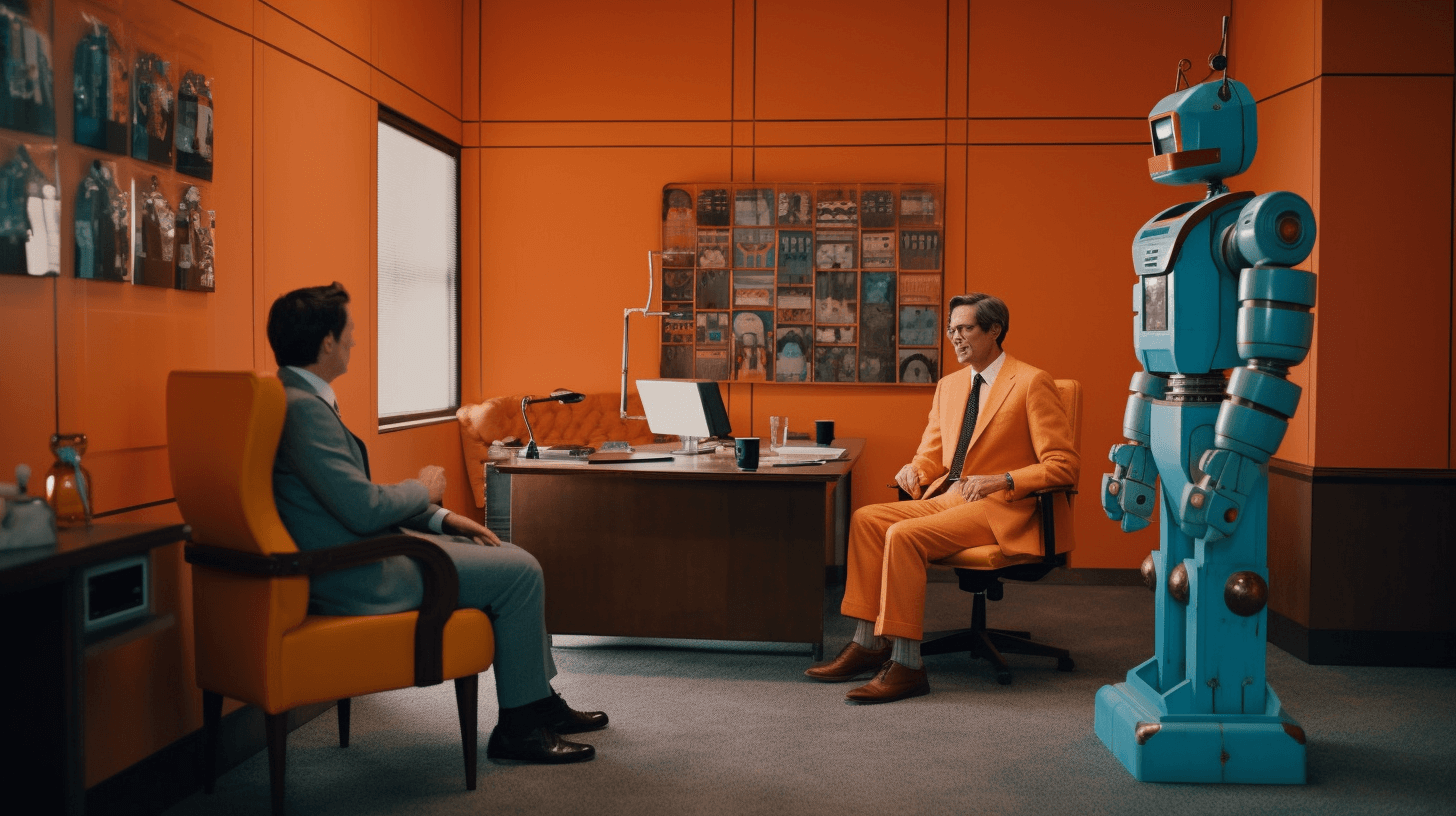Are You Guilty Of The AI Dismissal Reflex?
Not much has stuck with me from my primary school days in terms of solid, concrete memories.
But one story that really made an impression on me and I remember clearly to this day is the lesson of how Anne Sullivan worked with Helen Keller, a bright but isolated seven-year-old girl who couldn’t see, hear, or speak.
As the story goes, Sullivan's first attempts to teach Keller language (through finger spelling) were pretty frustrating. Keller, though clearly intelligent, couldn't initially grasp the connection between Sullivan's hand movements and the world around her. A less persistent teacher would have declared the task impossible and walked away (and in fact, many already had).
But, Sullivan persisted.
Apparently her breakthrough came at a water pump, where she spelled "w-a-t-e-r" into Keller's palm as water flowed over her other hand.
In that moment, Keller understood not just a word, but the entire concept of language.
I imagine that moment must have felt incredible for both Sullivan and Keller.
It also unlocked one of history's most remarkable minds. But it almost didn't happen.
What’s the relevance to AI?
In lots of my work with businesses grappling with their first forays into AI literacy and skill development, I see a similar pattern emerging to what Sullivan and Keller went through…
I call it the "AI dismissal reflex”...
- … the tendency to dismiss and abandon AI tools at the first sign of imperfect output.
- … the reflex to throw one’s hands up in the air and proclaim “this isn’t what I wanted. AI sucks!” at the first sign of an AI’s output not being exactly what the user thought it might/should be.
- … the inclination to hold an AI to higher standards than one would hold a human to; expecting first-time perfection from an AI in work that a human assistant or colleague be forgiven for first-time imperfection and given instructions on how to improve their work.
The “dismissal reflex” is all of the above, and it threatens to rob many people of their own Sullivan/Keller breakthrough moments of connection (with AI).
Breakthrough moments that could unlock unprecedented efficiency, productivity and joy for them.
When brilliance meets a barrier
It’s commonly accepted that Helen Keller had extraordinary intelligence, but that for a long time it was locked behind communication barriers.
Similarly, modern AI tools hold remarkable capabilities that often remain untapped due to “communication” challenges with humans.
Just as Keller needed Sullivan to bridge the gap between her mind and the world, AI requires humans who have the patience, perseverance and skills to effectively communicate their needs and intentions, in detailed back-and-forth dialogue.
Very often the barrier isn't the AI's capability; it's our own ability to push through the "dismissal reflex", and then to communicate effectively with the AI.
Breaking through the wall
Sullivan's breakthrough with Keller came when she connected abstract finger spelling with a tangible and relevant experience.
I think the same principle applies to people learning to interact with AI.
Rather than dismissing unsatisfying first outputs from an AI, really successful AI users learn to bridge the gap between their hopes and any first-draft frustrations.
Put simply; avoiding the “dismissal reflex” is just about persisting past any initial disappointments in a chat with an AI, and working out what extra context and information you need to give the AI.
Doing so will often move its output from average to outstanding..
Just as you’d give a human assistant or colleague a 2nd chance if they gave you an unsatisfying first try at something, I encourage you to do the same with your AI tools.
When training people, I often hear them say, "It gave me X, but I wanted Y, and I wanted it to sound more like Z."
My response is simple: "Why don't you tell the AI that, not me?"
When they do, the improvements in the AI’s output are often remarkable.
All it needed was a few more detailed instructions. And patience.
 Mark! I told it to "write my report" but it didn't even understand it needed to be 1,000 words about our sustainability award we just won. AI sucks! And so do you! (Plus, where's my desk gone??!)
Mark! I told it to "write my report" but it didn't even understand it needed to be 1,000 words about our sustainability award we just won. AI sucks! And so do you! (Plus, where's my desk gone??!)
The danger of early dismissal
If Sullivan had just dismissed Keller as "unteachable" after their initial struggles, the world wouldn’t have got access to one of the 20th century's most influential voices.
That would’ve been a genuine shame for us all. It’s no exaggeration to estimate that Keller has been an inspiration for millions of people all around the world over the past 100+ years.
Similarly, when I see people throw their hands in the air during a moment of “AI dismissal reflex”, I always get the feeling that they’re missing the chance to have really awesome moments of AI success.
As an example…
Recently, a senior exec in one of my workshops asked her AI chatbot to help her update her GTM (Go To Market) strategy for a new service they were soon to deploy.
Disappointed with an initial response that she felt was too generic, I watched as she declared the technology "... useless! I wanted it to focus on the fact that the OCR rates have recently come down, but it mainly wrote about the change in government!"
When I encouraged her to refine her AI chat by telling it exactly what she’d just said to me, she got an output that was exactly what she wanted (and even extended her strategy in new ways she hadn’t thought of!).
Instead of just complaining to me about what she wanted the AI to do, all she had to do was articulate that complaint back to the AI, as a detailed instruction.
I’ve seen this pattern repeat time and again, in working with business leaders from so many different types of industries, niches and business models.
Another example that comes to mind was a CEO of a manufacturing business. During his “AI dismissal reflex”, he threw his hands up in exasperation and nearly abandoned his AI on the spot during a chat where he was asking for help with his quality control documentation.
With a bit of encouragement though, instead of writing the AI off as “bloody bulls**t” (yes, his real words) and by just giving the AI a bit more specific information about what it was that he wanted, he ended up with something he was very happy with.
In fact he immediately emailed the AI’s suggestions to his Head of HR. (Now, he tells me, the system helps reduce documentation time by 60%).
But in both those situations, the difference wasn't in the AI's capability, but in the users’ willingness to push through their “dismissal reflexes” and keep communicating with the AI in a more detailed way.
Building a partnership
Going back to the relationship between Sullivan and Keller… theirs eventually evolved from a teacher-student scenario to a really profound partnership that enriched both of their lives.
Similarly, I see the most successful AI implementations happen when users move past seeing AI as a simple tool and begin treating it as a collaborative partner.
This partnership mindset requires:
- Patience with initial outputs (the equal of the patience you’d display to a human colleague)
- Clear communication of desired improvements
- Recognition that AI combines remarkable intelligence with a need for (very) specific guidance
- Willingness to iterate and refine requests
The people, and businesses, that I’ve seen have the greatest AI success so far aren't those with the most technical expertise.
They're the ones who've best learned to communicate effectively with their AI tools.
I like to frame it this way…
Consider AI like a brilliant intern: incredibly capable but needing very clear direction and instruction.
You wouldn't dismiss or ridicule a promising intern for a less-than-perfect first stab at a task you’d set them. Instead, you'd guide them toward better understanding and give them.
You could say that legacy of Anne Sullivan's persistence extends far beyond her work with Helen Keller.
She reminds us that breakthrough moments often come after initial struggles.
But only if we persist.
As you and your business explore AI capabilities, please resist the Dismissal Reflex.
Consider what brilliance might be waiting to be unlocked through a bit of perseverance, and better communication.
Your next chat AI probably won’t change the world like Sullivan and Keller’s partnership did. But it might just transform your work — if you give it the chance.






